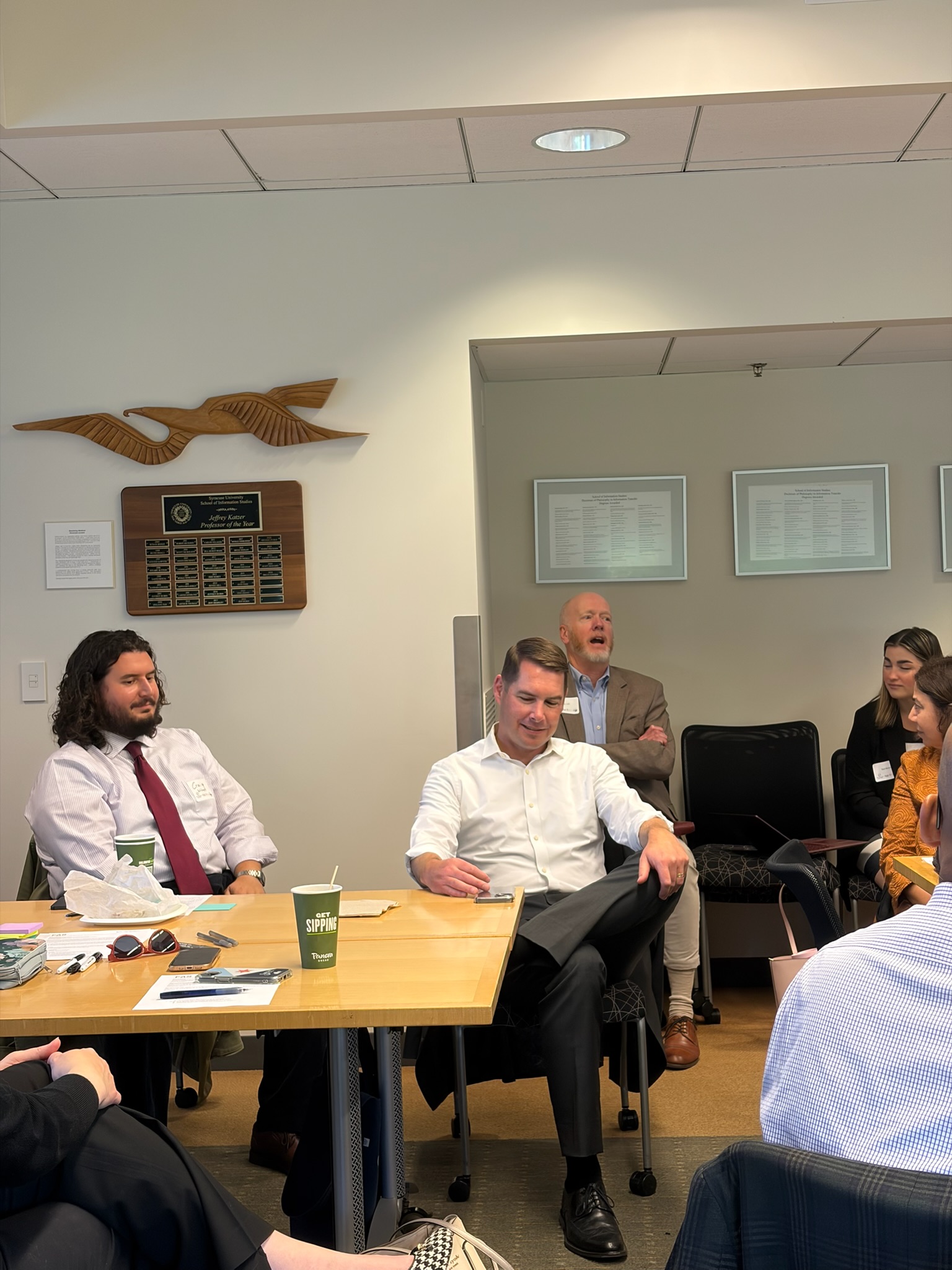 Syracuse has been selected as one of 20 cities participating in a national initiative to shape a research and development (R&D) agenda for local governments. On October 1, 2025, more than 40 participants representing city departments, Syracuse University faculty and researchers, and city and senior leadership gathered for a half-day workshop. The discussion aimed at identifying research opportunities that support local priorities in areas such as housing, transportation, sustainability, public safety, economic development, and community engagement, and explore opportunities for long-term collaboration.
Syracuse has been selected as one of 20 cities participating in a national initiative to shape a research and development (R&D) agenda for local governments. On October 1, 2025, more than 40 participants representing city departments, Syracuse University faculty and researchers, and city and senior leadership gathered for a half-day workshop. The discussion aimed at identifying research opportunities that support local priorities in areas such as housing, transportation, sustainability, public safety, economic development, and community engagement, and explore opportunities for long-term collaboration.
Hosted by the City of Syracuse at the School of Information Studies (iSchool), the workshop was organized in partnership with Syracuse University and MetroLab Network team. The MetroLab Network is an initiative of the Federation of American Scientists, a Washington, D.C.-based nonprofit committed to advancing evidence-based research and policymaking. MetroLab is engaging 20 cities across the country—including Syracuse—to gather input from local governments, universities and community organizations as it develops a national Local Government R&D Agenda promoting inclusive growth and opportunity.
“The Syracuse workshop contributes our region’s perspective to that broader initiative” said associate professor Sevgi Erdoğan, who led the academic coordination of the workshop. Jennifer Tifft, Director of Strategic Initiatives in the Mayor’s Office led the coordination of the event, bringing the three together.
Erdoğan also directs the Smart Cities and Civic Technologies Research Center at the iSchool. She noted that the workshop builds on momentum already underway to foster interdisciplinary research on complex urban challenges at Syracuse University. “In recent years, we have worked to establish a foundation for collaboration among faculty and local agencies,” she said, referencing her 2024 Faculty Fellowship from Syracuse University Center of Excellence in Environmental and Energy Systems (SyracuCoE), which supported building a research network and event series around smart cities.
Erdoğan highlighted how this workshop offered an opportunity to deepen those connections, stating “this event represents a continuation of our efforts to align university research with real-world urban challenges. It was an opportunity to bring researchers and city staff together in one room to build mutual understanding and define where academic expertise can make a tangible impact.”
The program began with comments from Mayor Ben Walsh, who underscored the city’s commitment to leveraging data and research to inform policy and improve public services. His remarks were followed by expressions of institutional support from Syracuse University leadership, including Vice Chancellor and Provost Lois Agnew, Associate Vice President for Research Katherine McDonald, and iSchool Dean Jeff Hemsley, who each highlighted the university’s dedication to community-engaged, impact-driven research. Attendees included representatives from several city departments—planning, transportation, public safety, sustainability, innovation, and data analytics—as well as faculty from across the University, including the iSchool, College of Engineering and Computer Science, the Maxwell School, and others.
The program featured short “lightning talks” in which city staff outlined current challenges and departmental priorities. Faculty then presented relevant areas of scholarly expertise and proposed ideas for applied research. In the afternoon, participants engaged in structured roundtable discussions designed to identify overlapping interests and concrete opportunities for collaboration.
“One of the most meaningful outcomes was opening up space for mutual understanding,” Erdoğan observed. “There is often a perception that academic research is disconnected from the practical needs of city governance, or that partnering with government is procedurally difficult. What we saw instead was a clear enthusiasm on both sides to engage and co-develop applied projects.”
Following the workshop, MetroLab will provide synthesized notes and analysis to highlight key research themes that emerged from the discussion, along with a set of potential collaborative project ideas and priorities. These priorities will contribute to the national Local Government R&D Agenda, which MetroLab team intends to use as a guide for future federal research investment and cross-sector collaboration. Erdoğan emphasized that even modest initiatives such as data analysis support or integration of city challenges into academic coursework can yield meaningful benefits.
“Our goal is to identify shared priorities and lower the barriers to collaboration,” she said. “Ultimately, we hope this effort will help institutionalize pathways for sustained engagement between university researchers and city partners and demonstrate how academic work can inform policy and practice in tangible ways.”
